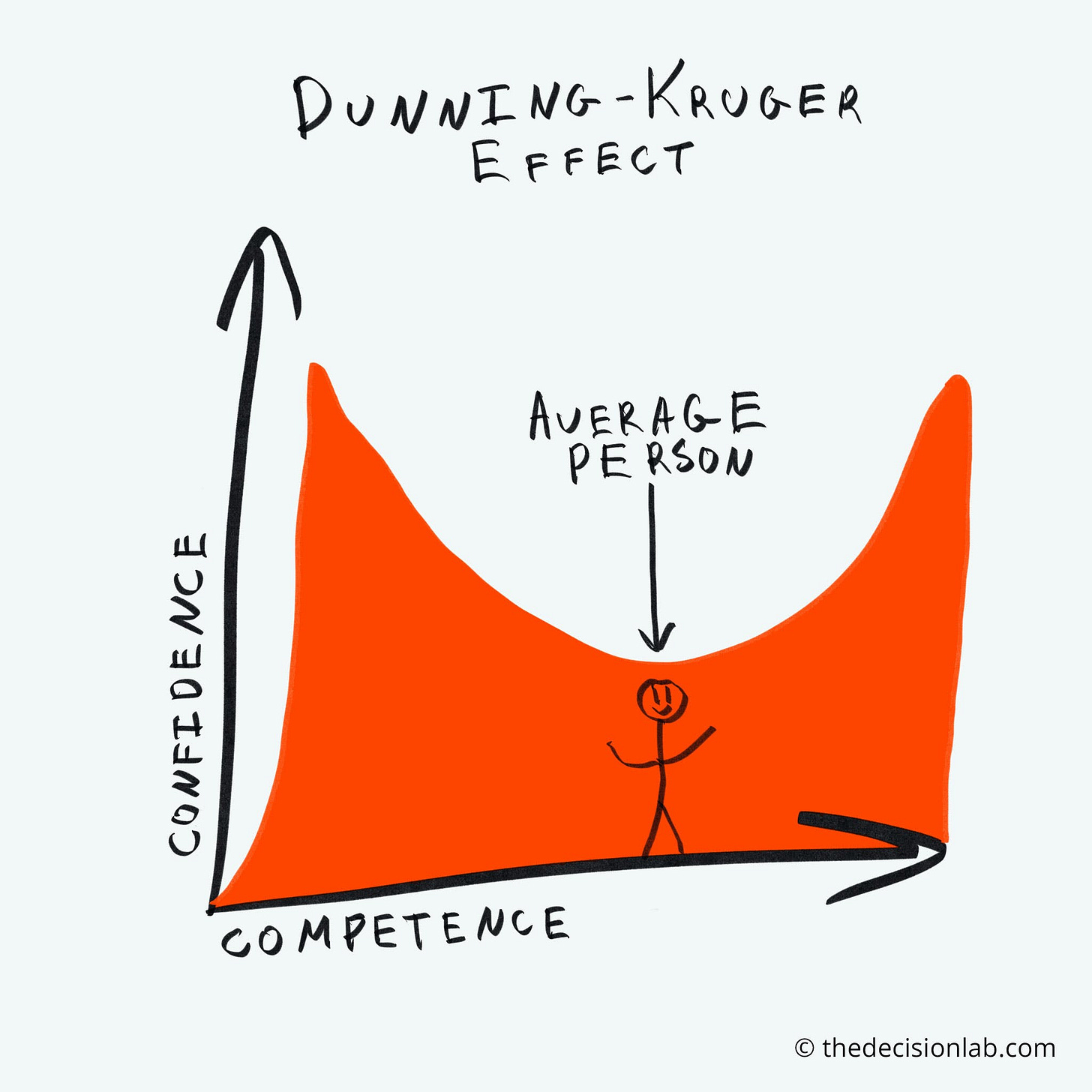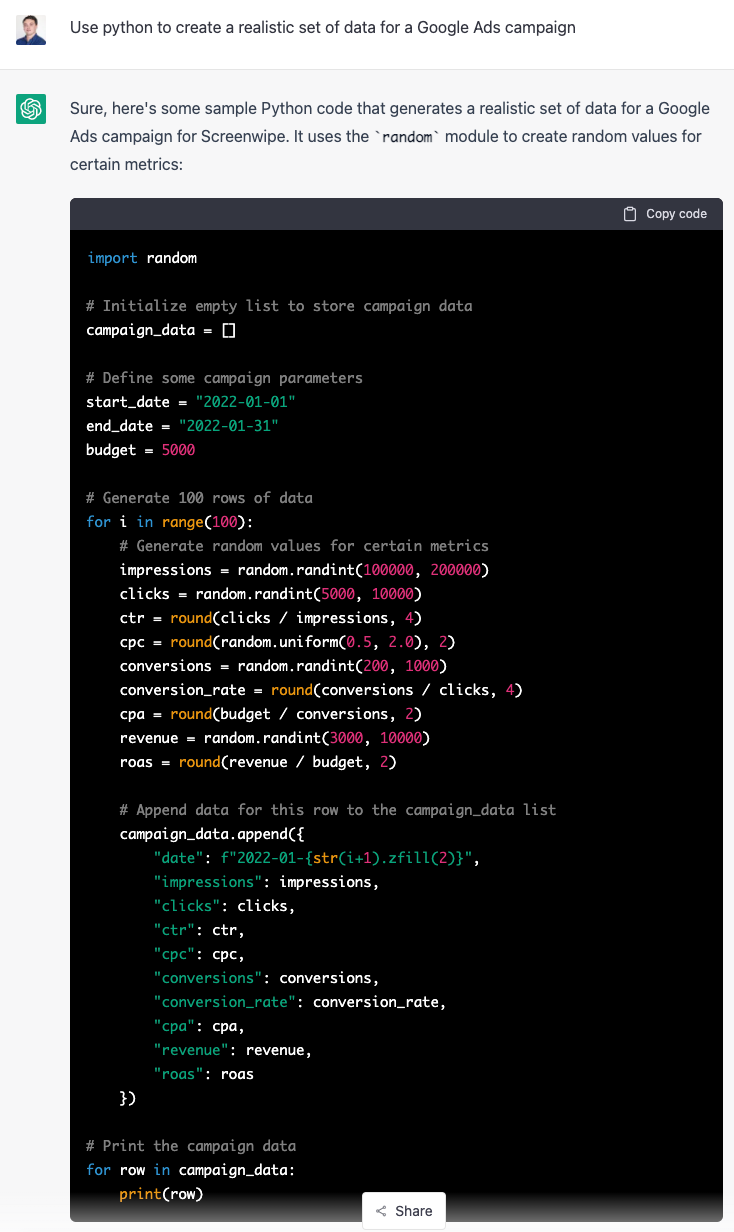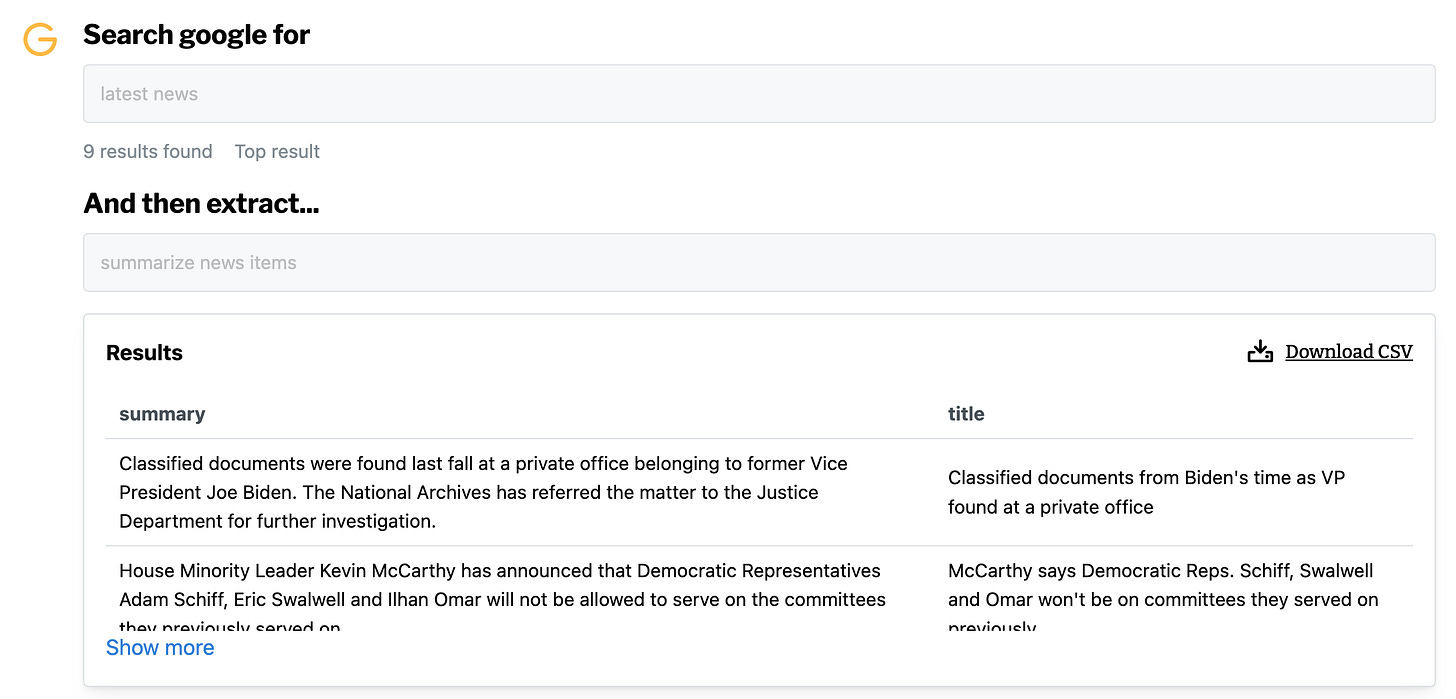No. 151: 🤖 5 Ways I'm *Really* Using ChatGPT
+ 😫 The ChatGPT Dunning-Kruger Club
Hello,
Did you know that over 350 griffon vultures have died in Spain in the last decade because they flew into wind turbines?
Vultures are one of the very few species on our planet with better eyesight than humans. And yet, they fly into those giant white monstrosities.
Why?
Well, they just aren’t looking for them. They’re looking to the side and down, not straight ahead.
Ah, but why am I mentioning this?
Am I trying to make some grand point about blind spots?
Maybe it’s a tortured parable about how we miss what’s right in front of us?
No. It will be, when someone pays me to make a McKinsey-style trends deck.
Actually, I was wearing my giant puffer jacket earlier with the hood all stitched up like Kenny from South Park, and my restricted vision made me think I was like a reverse vulture. I could only see what was directly in front of me.
I note these things down.
One day, when I get my call to create the trends deck to end all trends decks, I’ll be ready.
This time in hi, tech.:
A little discussion about the role of ChatGPT in education, and why I’m increasingly inclined to agree that we should be cautious.
Despite these limitations, GPT-based language models still have powerful uses if we incorporate them into our existing practices.
Some potential uses of ChatGPT include:
Summarising text
Generating code
Suggesting new ideas for content
Reformatting content
Examining arguments
I’ll show you how I’ve been using it to do precisely these things.
You may have seen that the New York City Department of Education has banned access to ChatGPT for students.
In all honesty, my gut reaction to that announcement was that we shouldn’t try to restrict change and we should instead rethink how we learn.
I almost asked ChatGPT to brainstorm some LinkedIn posts for me and all.
And then I did do that, because it seemed like it would create funny content for this newsletter.
Meh.
However, since then I have been using ChatGPT a lot more and I understand the decision to ban its use in schools. Frankly, the tool makes a lot of mistakes.
It is sensible for schools to apply some caution while:
The technology improves
We figure out how the heck to manage it
A researcher, Missy Cummings, posted on LinkedIn that ChatGPT “is the perfect tool for disinformation. And for creating a lot more people who think they are knowledgeable, but really belong to the Dunning-Kruger club.”
That is to say, it gives people a false sense of confidence in their own knowledge or ability.
I ran into such an intellectual cul-de-sac myself a few times while using ChatGPT. I asked it to handle complex coding tasks that I would struggle with, and I was impressed by the fluency of its response. It looked so complicated, it must be right!
But how would I know otherwise?
With code, it is possible to run it in the console and check the output. It works or it doesn’t.
No such checks or balances exist on Twitter. ChatGPT could spit out seductive falsehoods, the type that tend to go viral on social media. As we know, it is difficult to put that particular genie back in the bottle.
So, I find that you need to know more than ChatGPT does about a topic for the tool to be useful. That inevitably limits its applications, because we want these tools to act as superpowers that manage with ease what we would toil to achieve.
The truth is more prosaic. It often is. That’s why it’s so unpopular.
Nonetheless, when pointed in the right direction, I am finding ChatGPT to be a handy companion.
Here are five tasks I use it for multiple times every week.
1. Blog post summaries
Don’t believe me?
Well, ChatGPT wrote the draft version of the bullet points you saw at the start of this post.
2. Generating code
ChatGPT excels as a coding assistant. I have it open all the time and I ask it to write commands, then I copy the code and take it elsewhere. It can create everything you need for great data visualisations, too.
Here’s a bland-but-instructive example:
Or it can generate data for new training scenarios:
I find that the key is to open the discussion with a clear, short prompt that:
Tells ChatGPT what its role is (You are a data scientist)
Selects clear coding packages to use (Provide the code for a data visualisation created using Seaborn)
Is specific about the output required (On the x-axis, display time in months)
Provides context (This code will be used for x)
3. Content ideas
A chum of mine has created a prototype for a tool here:
It integrates ChatGPT into workflows, so you can ask it to Google a topic and then generate new content ideas or tweets, for example.
Take a look - you get five free credits and I think it’s very useful.
Let me know what you think, too - I’m speaking to him this week about some ideas to build on the initial version.
I used it to scan some of my old newsletter posts, then suggest angles for follow-up articles. It suggested I write about the future of social media once generative AI takes off, which I plan to do soon. 🤓
4. Reformatting content
ChatGPT is terrible at writing full articles. For instance, if you ask it to write a blog post it will be written in a bland tone of voice and it will provide no real insight. To be clear, I mean to contrast ChatGPT’s output with hi, tech.’s usual, sparkling prose.
This means that I only really use it to generate content that I can disagree with and rewrite completely.
However, it does a terrific job of breaking up large blocks of text into sub-sections. I also ask it to create a proposed structure for articles, once I know the themes I want to cover. Again, they are never quite right, but they provide a starting point.
I do things like this:
And this:
I wouldn’t post it as it is here, yet it is quicker to edit this than to start from scratch.
5. Finding the holes in plans and arguments
This is where I think ChatGPT can be of greatest strategic utility. I can ask it to assume a perspective and to challenge my argument.
I find this most useful when talking about my plans for new business initiatives, because I am invariably excited about them and therefore I am partially sighted. Like a Spanish vulture heading for the wind turbine.
However, ChatGPT is rather weak in this area today.
There is a new ChatGPT rival that is set up to use more sophisticated logical reasoning.
But you’ll have to wait for the next hi, tech. to read all about that. 🦅
One for the road 🍻
This is genuinely quite good, no?
The metre is pretty much spot on and the images (‘that man-made blade’) put one in mind of Blake’s dark satanic mills.
Until next time, reader!












That poem is impressive right up until the last verse, when it doesn't quiiiite stick the landing (repetition of "cost"), and there are some lines that throw the meter off. But I'll admit it's decent (especially in its understanding of the issues at hand and how those are conveyed via poetry), to the point where I wondered if there should be a similar outcry as there has been over image generation AIs regarding ChatGPT putting poets out of work. A cursory Google suggests not, but maybe that's because we don't typically commission poems in the same way that we do artwork (or put them on book covers, use them to design characters and settings, etc.) and so ChatGPT's poetry is more of a novelty than replacing any existing demand. Still, how long before someone thinks to put together and sell a volume of AI-generated poetry...?
Have you heard about the news that Bing is supposedly planning to integrate ChatGPT? With Microsoft's partnership with OpenAI, it was basically a given, but with the number of errors that ChatGPT still produces for factual queries I wonder how they will make it work.